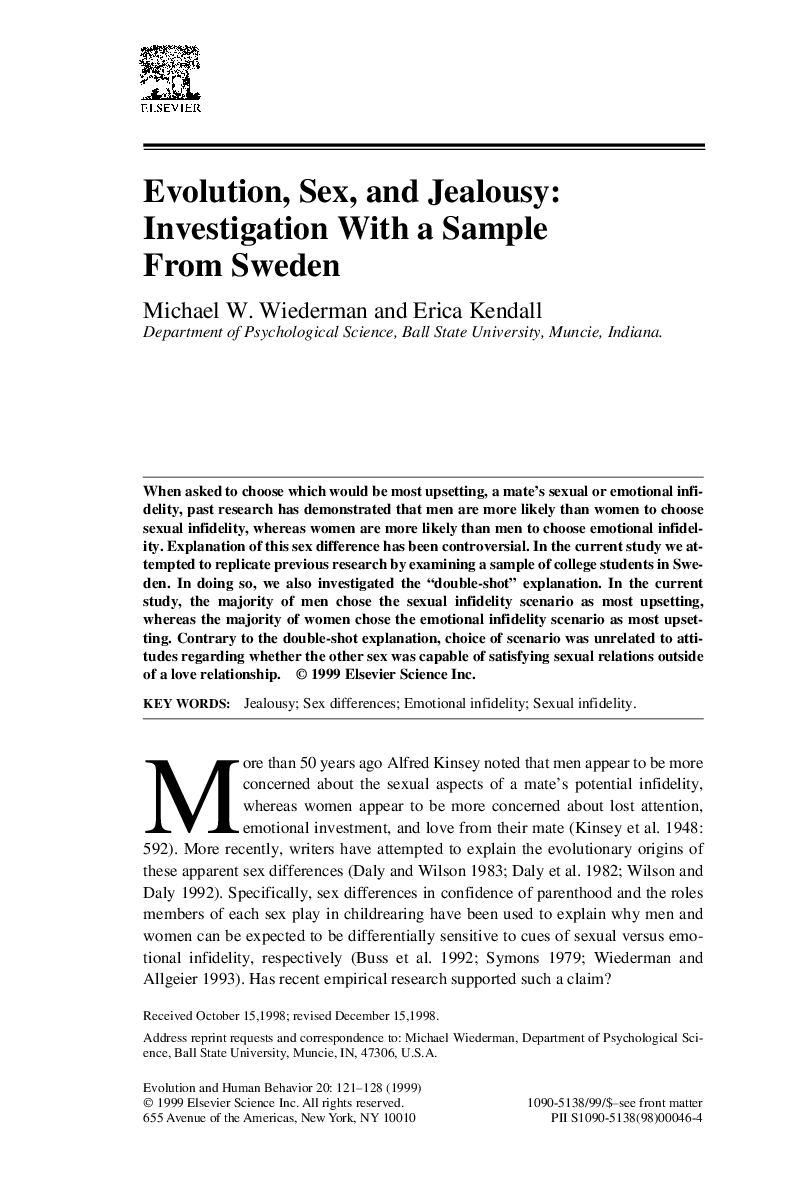ترجمه فارسی عنوان مقاله
تکامل، جنسیت و حسادت: بررسی با نمونه از سوئد
عنوان انگلیسی
Evolution, Sex, and Jealousy: Investigation With a Sample From Sweden
| کد مقاله | سال انتشار | تعداد صفحات مقاله انگلیسی |
|---|---|---|
| 36450 | 1999 | 8 صفحه PDF |
منبع

Publisher : Elsevier - Science Direct (الزویر - ساینس دایرکت)
Journal : Evolution and Human Behavior, Volume 20, Issue 2, March 1999, Pages 121–128
ترجمه کلمات کلیدی
حسادت - تفاوت های جنسی - خیانت عاطفی - خیانت در زناشویی
کلمات کلیدی انگلیسی
Jealousy; Sex differences; Emotional infidelity; Sexual infidelity

